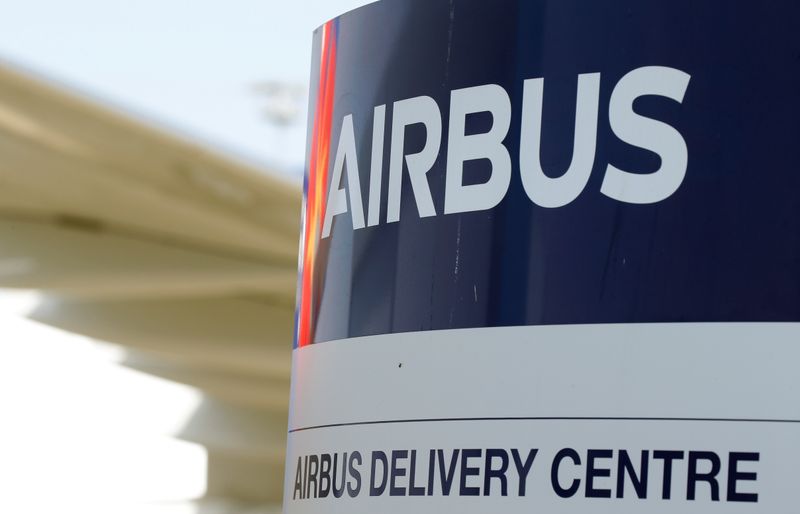By Tim Hepher and Johanna Decorse
PARIS/TOULOUSE (Reuters) - Airbus (PA:AIR) has shelved plans to add a French assembly line for its A321neo just 10 weeks after the expansion was launched, as the coronavirus fallout spreads to its best-selling jetliner.
The move heralds the start of a politically sensitive drive to cut investment and overheads as the pandemic reverses the last 8 years of production growth for such single-aisle jets.
Airbus announced plans for an extra assembly line in January when its problem was meeting record demand for the A321neo from its site in Hamburg, Germany, which has suffered production bottlenecks.
That would redeploy jobs threatened by the imminent demise of the A380, the world's largest jetliner whose popularity with airlines has slumped in favour of smaller models.
Although the plan remains on the table, its urgency has evaporated after Airbus this week announced a one-third cut in output of jets like the A321, sources said.
"Our plans for an A321 line in Toulouse are paused, on hold," an Airbus spokesman confirmed. "When we see rates going up again, we will reconnect to the plans."
That leaves a question mark hanging over its massive Lagardere A380 production plant in Toulouse, where the last superjumbo is due to roll off the line in coming months.
French unions said they would fight for the plant.
"Unlike (Airbus CEO) Guillaume Faury who wants to halt non-essential investment, we think the arrival of a new A321 line in the Lagardere factory must be maintained," CGT union official Xavier Petrachi said.
BALANCE OF JOBS
The move could rekindle a debate over the balance of jobs between French and German plants at the company, founded as a European consortium 51 years ago.
Airlines are shifting more towards single-aisle jets like the Hamburg-assembled A321 at the expense of wide-body jets put together in Toulouse, leaving French workers on edge.
When the recovery does come, small jets are expected to lead the way because they are easier to fill and trip costs are low.
Airbus is also taking a wider look at fixed costs that weigh more heavily on the profitability of each jet when output falls.
After investing several hundred million dollars in ramping up production, it has a cost structure to support output of 900 planes a year whereas it is expected to ship far fewer.
"We are reducing all nature of costs which are no longer absolutely necessary for the short term and preserving the ability to go through the crisis," Faury said this week.
Airbus has signalled it wants to cut some costs in line with the one-third output cut, unions said. That includes in engineering and support. Development studies will also be hit.
Staff have been told to take 10 days' paid leave by mid-May. Airbus has said it may look at government-backed partial unemployment schemes, but has not done so yet.
Industry sources said a worst-case scenario could include restructuring comparable to its 2007 Power8 shake-up this summer when it has more financial clarity. That is also when Airbus starts its rolling three-year planning process.
Rival Boeing (N:BA) is pondering 10% staff cuts, sources said. Cutting fixed costs at Airbus has traditionally been hard because of a delicate industrial jigsaw designed to balance work among core nations France, Germany, Spain and Britain.
"It is hard to do, especially in these circumstances as there is so little time," said aerospace consultant Jerrold Lundquist, managing director of the Lundquist Group.
Airbus is also expected to lean on suppliers, though it has lost some leverage after cutting production.

"The way you survive a downturn is to hold product at the suppliers. You want to keep the supplier alive but at the same time not take all their product," Lundquist said.